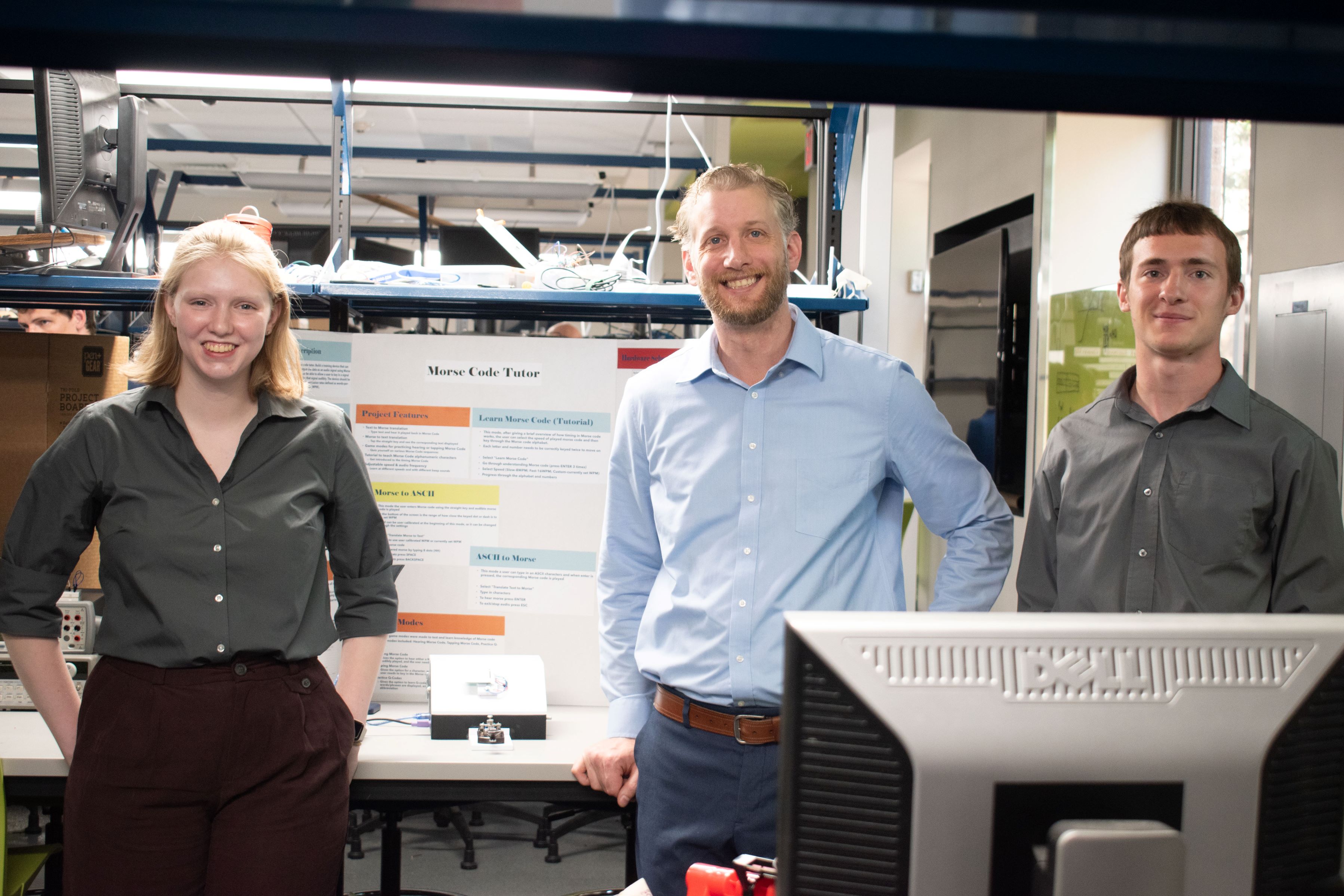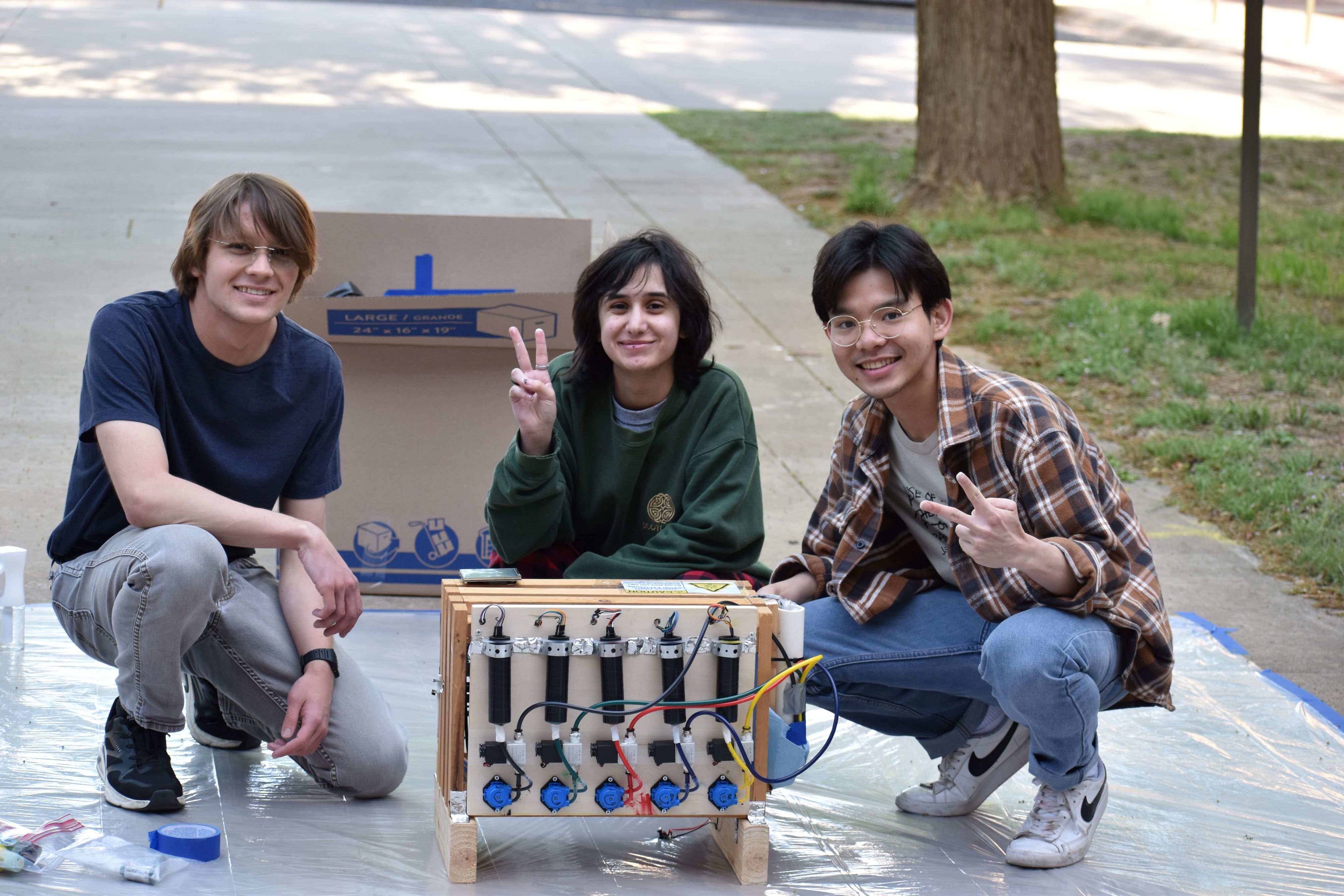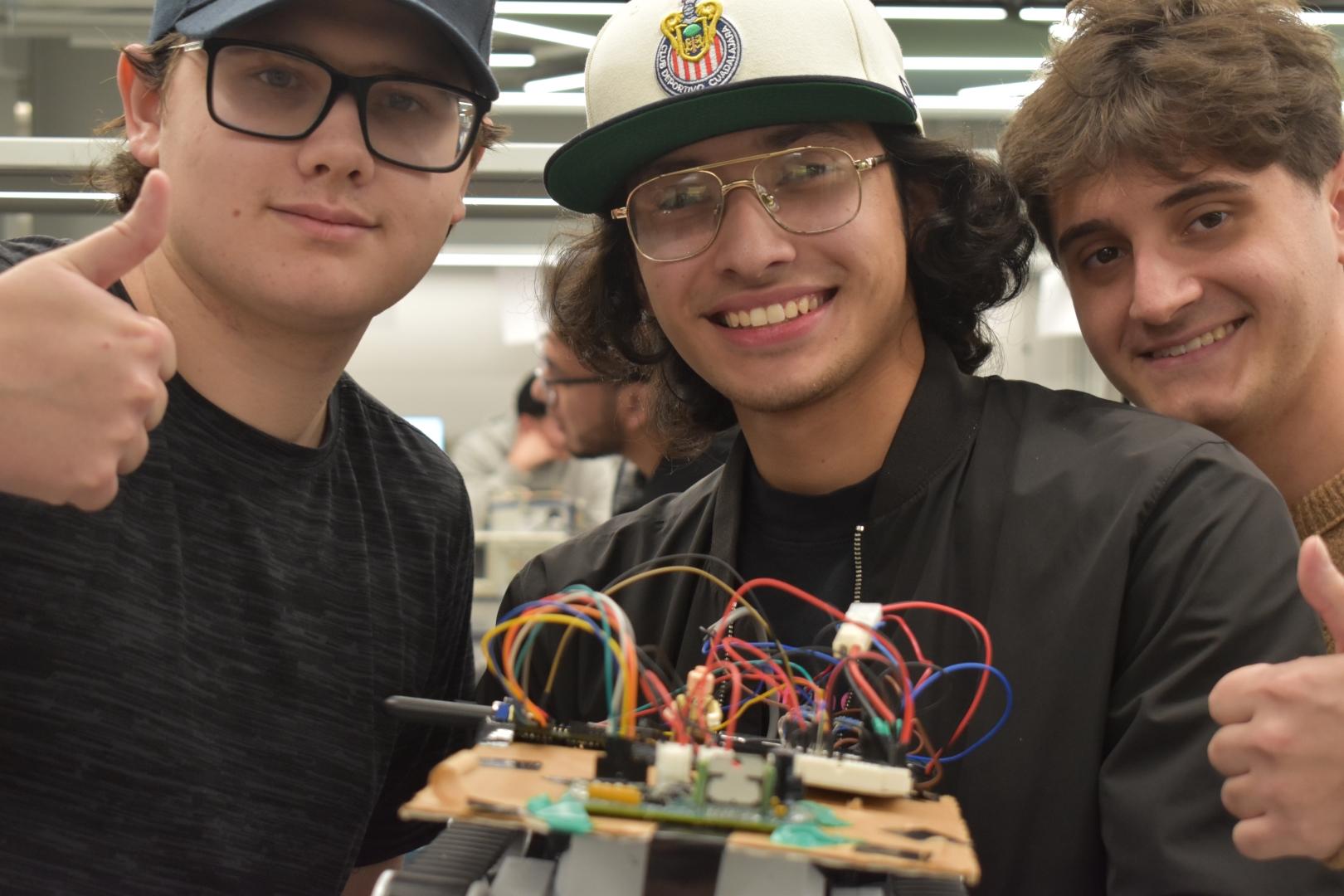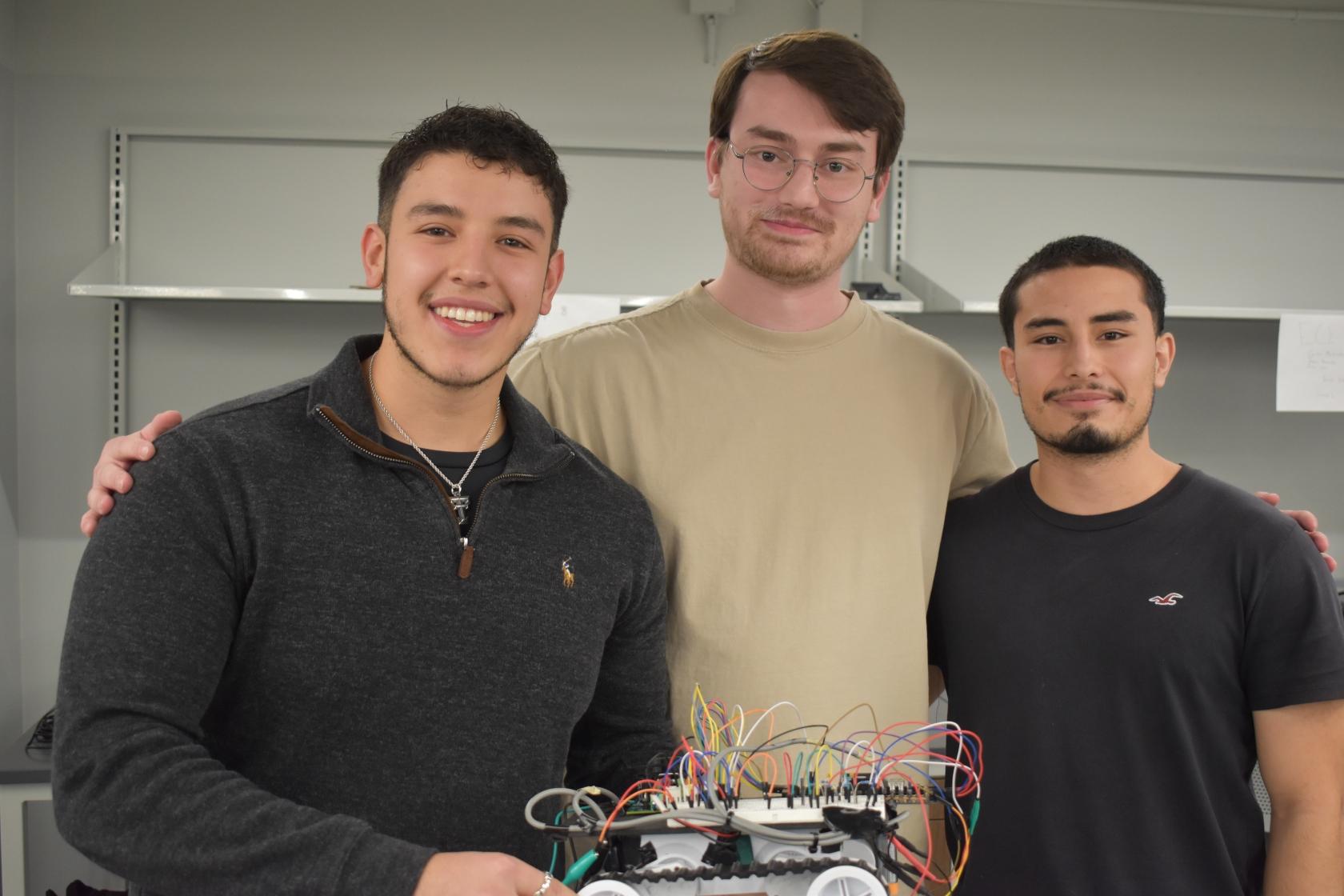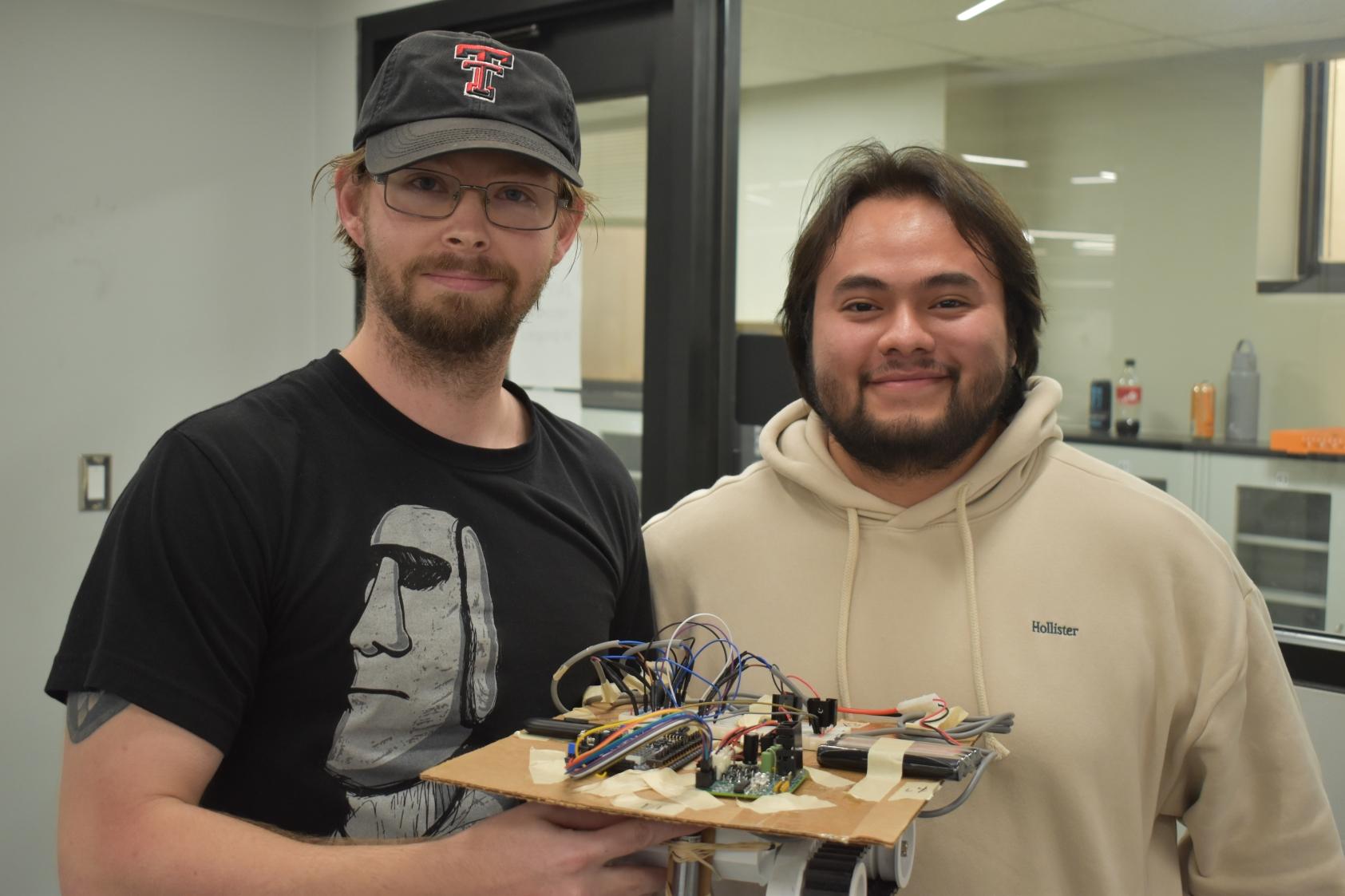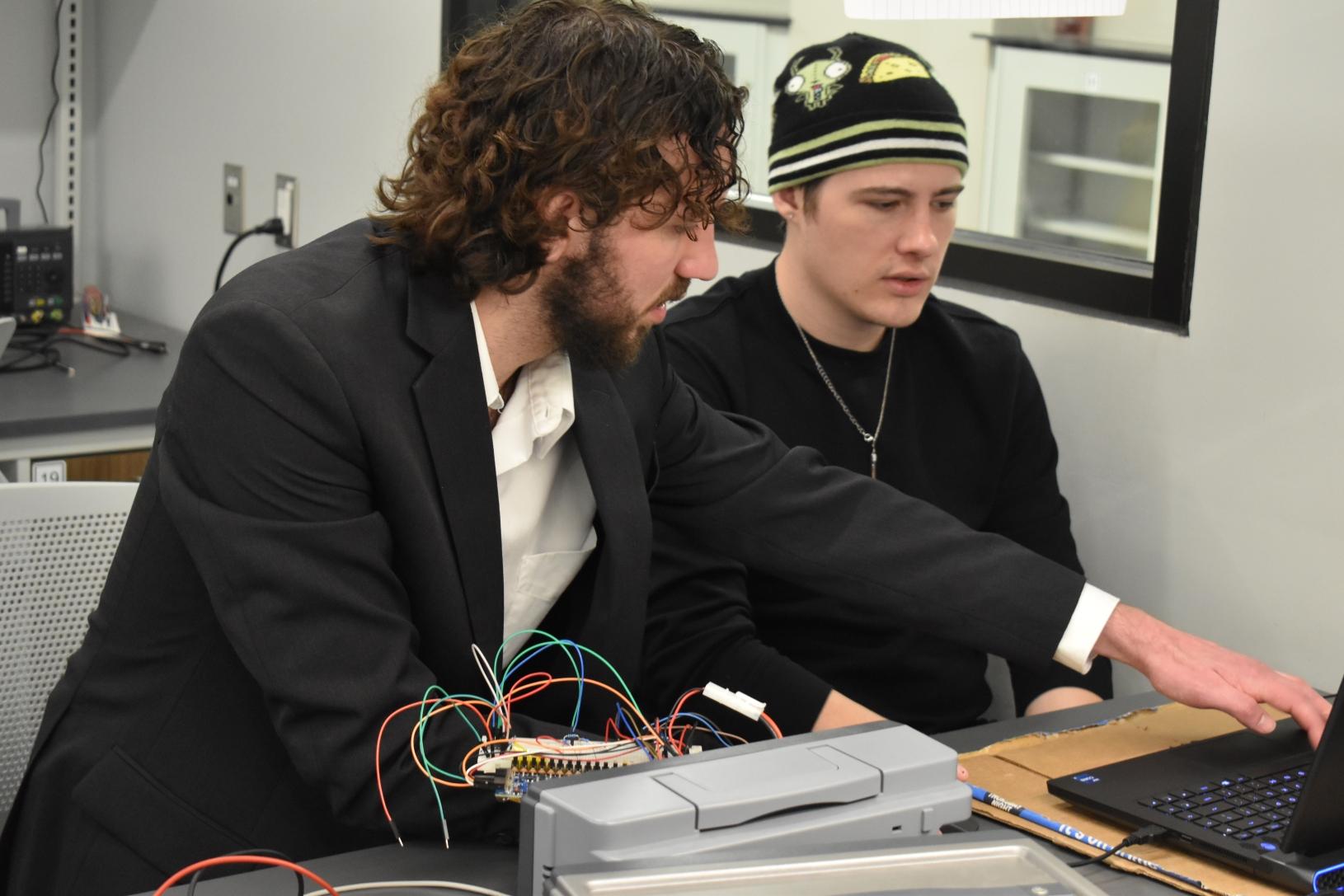ECE Undergraduate Advising Resources
Undergraduate Academic Advisors
Academic Programs
Advising Flowcharts
*Current ECE students refer to the recent flowchart from your advisor.
Technical Electives
Curriculum Spotlight
The fields of electrical and computer engineering are very broad and include a number of career specialties. To allow students to become more familiar with these areas, ECE offers a wide range of technical coursework consistent with the breadth of electrical and computer engineering and inclusive of recent developments in the field.
Undergraduate Internship & Cooperative Class Credit
The Electrical and Computer Engineering Department at Texas Tech University has established
a program through which eligible Electrical Engineering and Computer Engineering undergraduate
students may receive course credit for their extramural work assignments.
Link
Field Related Electives
Concentrations
Students pursuing a Bachelor of Science in Electrical Engineering degree may gain a concentration in the following areas:
- Analog Very-Large-Scale-Integration (VLSI) - The process of creating integrated circuits by combining thousands, millions, or
billions of transistors into a single chip.
ECE 4310, ECE 4314, ECE 4321 - Microelectromechanical Systems (MEMS) - The technology of very small mechanical devices driven by electricity, with components
between 1 and 100 micrometers in size.
ECE 4381, ECE 4385, ECE 4386 - Power Systems - The technologies of generating, transmitting, and utilizing the electrical power
across the country or within your building, including wind, solar, and power switching
technologies.
ECE 4343, ECE 4344, ECE 4391 - Signal Processing - Deals with manipulating or analyzing analog or digital signals that include sound,
images, radio, telecommunications, control systems, sensor data, and biomedical data.
ECE 4364, ECE 4367 - Communication Systems - Design the installation of telecommunications equipment and facilities, such as
complex electronic switching systems, copper telephone facilities, and fiber optics.
ECE 4342, ECE 4344, ECE 4360 - Digital Systems - The electronic technology found in everything from your cell phone to your car
that uses discrete signal levels (often two) rather than continuous analog signals.
ECE 4314, ECE 4375, ECE 4382 - Control Systems - Using sensors to measure device performance and provide feedback to control a device
such as a vehicle, robot, or electromechanical system
ECE 4324, ECE 4368
Project Laboratories
An important contribution to accomplish these objectives is our five-course sequence, 4 required and 1 optional elective, of stand-alone project laboratory courses. In each of the project laboratory courses, students are given a brief description of a complex, open-ended project. The students, usually working in teams, are required to design, develop, construct, and evaluate a system to satisfy the requirements for the project. Faculty advisors evaluate the project based on finished products, required written reports, and oral presentations. By its very structure, the project laboratory sequence gives our students considerable experience in dealing with open-ended design problems. They also gain experience in working closely with others and in written and oral communication.
The material presented in the electrical and computer engineering lecture courses is incorporated in the project laboratory course sequence. The projects, however, are real-world problems that require students to go beyond the basic knowledge learned in the classroom. Through these experiences, students gain the technical maturity necessary to succeed in their chosen careers. In addition, the project laboratory courses address topics in engineering ethics and professionalism and help students develop the skills needed for lifelong learning.
The result of the overall curriculum is to prepare a graduate who is sensitive to the consequences of his or her work, both ethically and professionally, for a productive professional career. A broad educational background has been incorporated into these curriculums and personalized advising plays an important role in its implementation.
Advising Resources
Red Raider Orientation (RRO)
- RRO Website
- RRO First-Year Information
- Placement Exams
- TTU Credit by Exam (AP and CLEP)
- Admitted Student Tasklist
- Registration Holds
- Immunization Requirement
- Housing
- Buying the Right Computer for ECE
Registration
- Raiderlink
- DegreeWorks
- ScheduleBuilder
- Campus Map
- Add or Drop Classes
- Core Curriculum
- Multicultural Requirement
- Withdrawal Information
TTU
- Academic Calendar
- Catalog
- Transfer Equivalency Search
- Course Descriptions
- Course Syllabi
- Student Dashboard
SBS and Financial Aid
WCOE
Electrical & Computer Engineering
-
Address
Texas Tech University, Box 43102, 910 Boston Ave., Lubbock, TX 79409 -
Phone
806.742.3533 -
Email
ece@ttu.edu

